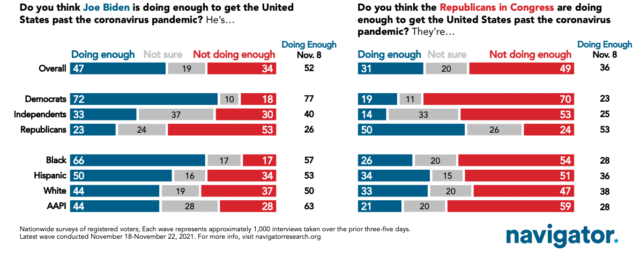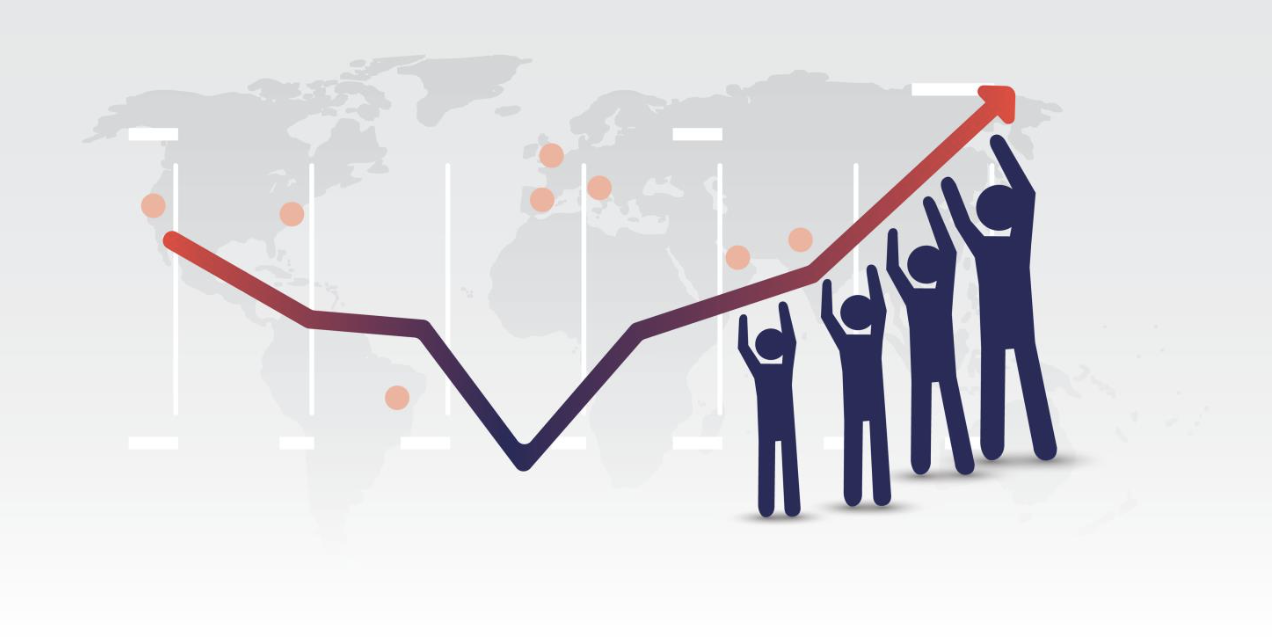- Biden and Democrats’ economic plans remain popular, with strong majorities supporting both stimulus checks from earlier this year and the Build Back Better plan.
- However, Biden’s approval ratings remain underwater: as economic woes persist, driven largely by inflation, there are signs of reemerging negativity on the pandemic.
- Biden and Democrats are more trusted to bring down the costs of healthcare and prescription drugs while Republicans are more trusted to bring down the costs of everyday goods.
Americans Still Support Biden’s Economic Stimulus
Nearly four in five Americans support the economic stimulus included in the American Rescue Plan, including 71% of independents and 58% of Republicans.
- On a separate question, three in four Americans across party lines report having received the stimulus check.
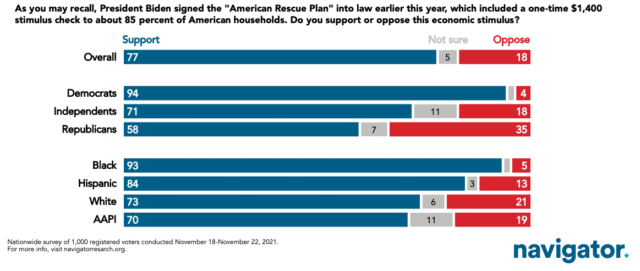
Support for Build Back Better Is High With or Without Paid Leave – Though Slightly Higher When It Is Included
Three in five Americans support the new economic plan with or without paid family and medical leave included, though net support is +30 without paid family and medical leave and +36 with it included.
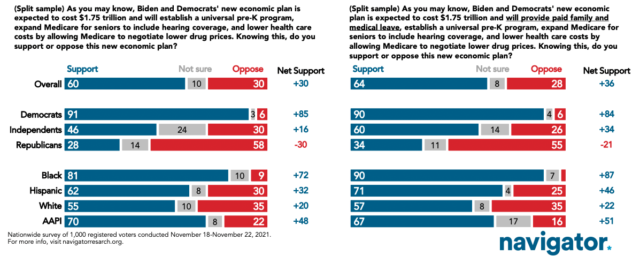
Explaining How the Plan Will Be Paid for Maintains Support for Build Back Better
Three in five Americans (63%) and independents (59%) support this legislation when it is contextualized with how Biden and Democrats plan to pay for it.
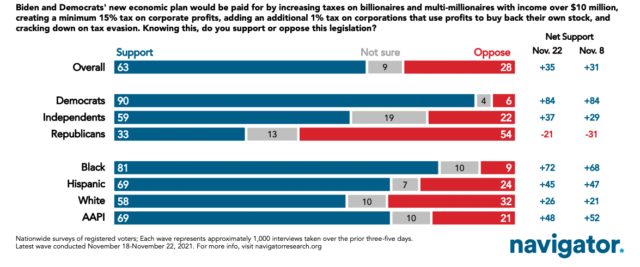
Biden’s Ratings Remain Underwater Overall and on Economy
Compared to his ratings from a month ago, Biden’s approval ratings on the economy and his job overall as president remain underwater, while he is still in the positive on the pandemic.
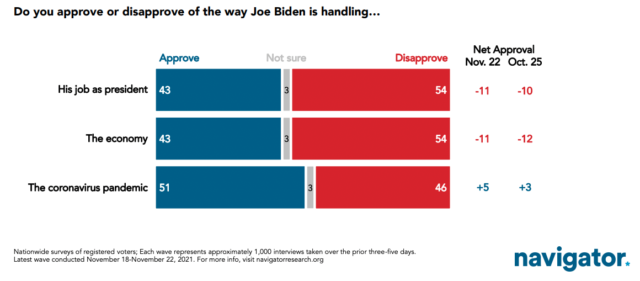
Three In Four Rate Economy Negatively As Views of Personal Financial Situations Grow More Negative
While over half of Democrats say they are “confident” in their personal financial situation (53%), roughly seven in ten independents (68%) and Republicans (71%) are “uneasy.”
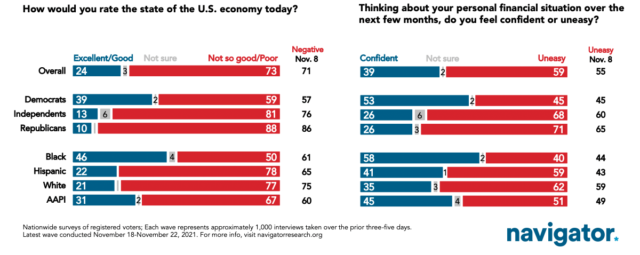
Americans Increasingly Feel Inflation Is a Top Issue Priority
Since asked in mid-October, there has been a 12-point increase in the share of Americans who say inflation is a top issue for Biden and Congress to focus on.
- The concern is bipartisan: 29% of Democrats, 42% of independents, and 52% of Republicans say it is a top issue.
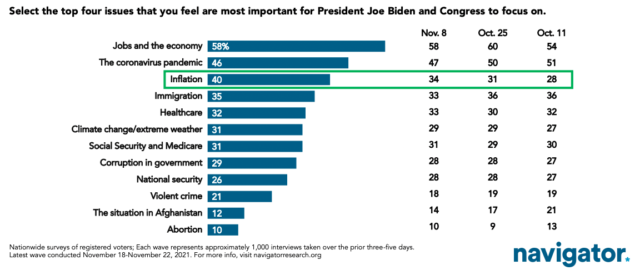
Americans Continue to Feel the Cost of Goods Is Going Up A Significant Amount, With A Slight Uptick in Concern
Nine in ten Americans say the costs of everyday goods are going up (92%) and roughly the same number say they are concerned about the rate of inflation climbing in the coming months (94%).
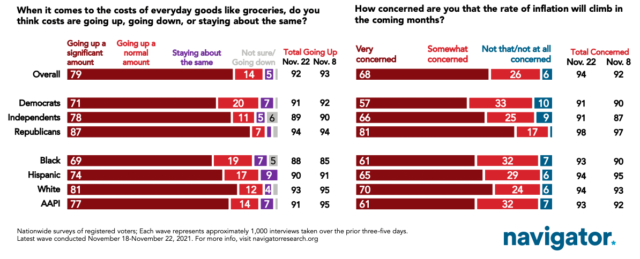
While Democrats Are More Trusted on Healthcare Costs, Republicans Hold an Advantage on Costs of Everyday Goods
Americans trust Biden and Democrats more to handle healthcare and prescription drug prices by a 10-point margin overall, though Republicans hold a 5-point advantage on the cost of everyday goods.
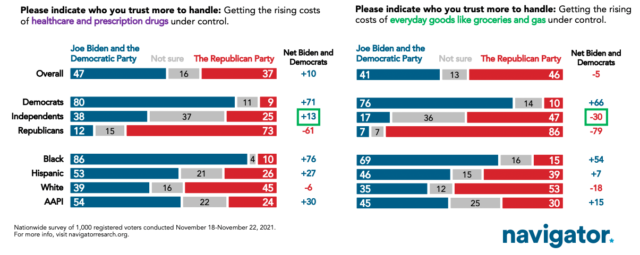
Best Rebuttals to Republican Criticisms on Spending Are Corporate Greed and Various Forms of GOP Obstructionism
Against a conservative argument that Democrats’ spending is causing inflation, progressive responses that blame corporations, Republicans for blocking policies that would lower costs, and Republicans for obstructing job-creating policies are effective; touting credit rating agencies and Nobel Prize-winning economists’ views is a losing response.
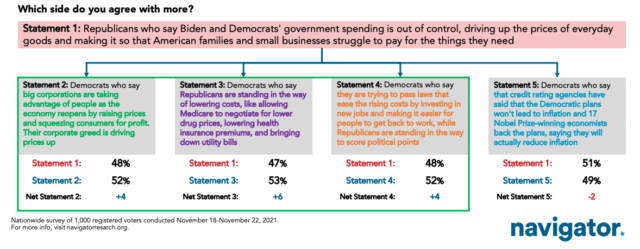
Pessimism on the Pandemic Reemerging Even Before Omicron News: Belief the “Worst Is Over” in the Pandemic Is Declining
Nearly four in ten Democrats (38%) and independents (36%) say the “worst is yet to come”; Republicans are most optimistic that the “worst is over” (49%).
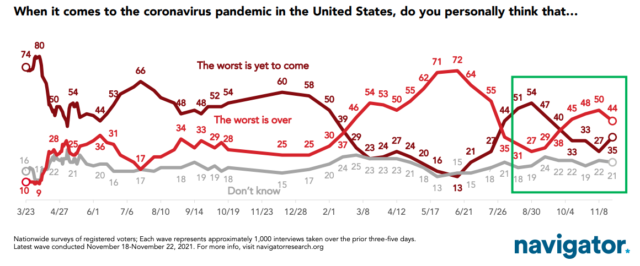
A Slightly Lower Share Say Biden Is Doing Enough to Get U.S. Past Pandemic, But Still Doing More Than Republicans
While more independents say Biden is doing enough (33%) than not enough, a majority of independents say Republicans in Congress are not doing enough (53%).
